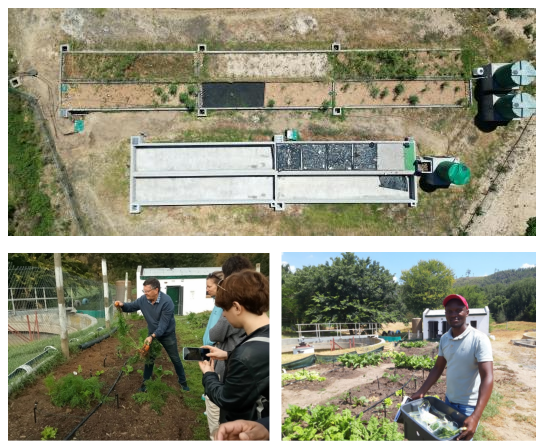Listen here on Spotify | Listen here on Apple Podcast
Episode released on October 2, 2025
Episode recorded on June 18, 2025
Image
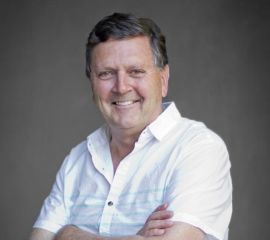
Kevin Winter discusses nature-based approaches to treating informal settlement discharge for use in agriculture and other sectors.
Kevin Winter is the Research Director at the Water Hub, which is an Urban Living Lab in Western Cape. The Water Hub is administered by the Future Water Institute within the University of Cape Town, and Kevin is an emeritus Professor at University of Cape Town also and was one of the founders of the Future Water Institute.
Highlights | Transcript
Cape Town Day Zero:
An incredible opportunity to show how to react to a crisis and send a message to the world.
- August 2017: Kevin met with the Section 80 committee and Cape Town city officials
- Focus on information gathering and sharing with city officials
- January 2018: 90 days left, ~4 million people in Cape Town
- Kevin got involved with social media and conducted 100s of interviews globally (Canada, S. Am, AU, etc)
- Running task team at the University of Cape Town
- University worked with the city guidelines to save water through campaigns
Lessons learned:
- How do you share data?
- How do you make data a part of decision making?
- Website set up to report status of dams, water resources, water use weekly (Figs. 1, 2, link1, link2).
- Sep. 5, 2025, dams 92% full
- Dams included: Berg River (capacity, 130,010 m3), Steenbras Lower (22,517 m3), Steenbras Upper (31,767 m3), Theewaterskloof (480,188 m3), Voelvlei (164,095 m3), and Wemmershoek (58,644 m3) (Fig. 1).
- Funding diverted from water quality and wastewater treatment plants to water quantity and supply
- COVID smashed the economy, amplifying water issues
- Daily and weekly dam levels reported on website:
- It is very difficult to get the water quality to an appropriate level that the discharge can meet compliance standards
- Waterways and coastal shores around Cape Town are degraded and compromised
Informal settlements:
- ~ 4,000 informal settlements in S Africa that house ~ 2 million people
- Cape Town: 400 settlements (Fig. 3)
- Difficult to quantify how informal settlements have been changing over time, expanding
- Urbanization in S Africa, legacy of apartheid, people previously confined to rural areas once called the “independent homelands” under the Apartheid system
- People need services, education, health, and jobs, generally found in urban areas
- Cape Town, good governance, providing housing through the Housing Development Agency, insufficient in terms of numbers moving to Cape Town
Water Hub:
- The Water Hub is located downstream of the Langrug Informal Settlement (Figs. 4, 5), which was initiated in 1993/1994 with people coming for jobs
- Wastewater management is a big issue globally, only 60% of wastewater is collected and only and only half of that is treated (Jones et al., 2021).
- S Africa: 600+ wastewater treatment plants, many are noncompliant with required standards
- Waste water discharging from upstream Langrug informal settlement to the Water Hub (Fig. 4, 6):
- Contains many different contaminants
- Contaminants accumulate in water bodies, bioaccumulate in plants and fish etc, and impact diet through protein etc.
- Informal settlements, no household toilets only communal toilets, 1 toilet/5 households, 50 people per toilet
- Attach wastewater in homes to stormwater pipe, point source to Stiebeuel River
- Discharge includes nutrients, bacteria, viruses, pathogens and antiretroviral drugs (used for HIV), and other pharmaceuticals
- Water Hub constructed in the old Franschhoek Waste Water Treatment Works which was no longer functioning. Conventional treatment plant in 1960s, with drying beds, settling ponds, slow oxidation, and final maturation pond and chlorine dosing. The plant started to deteriorate in 2007 and was abandoned in 2013. The Water Hub includes many components (Figs.7 - 10).
- Water Hub provides out-of-laboratory experience for students, field-scale applications
- Met with Premier Helen Zille and local officials who supported the project
- Living laboratory, center for learning, employment for students and people from an informal settlement
- Nature-based approach, designed to remove nutrients, pathogens, drugs etc.
- Decentralized wastewater treatment
- Clean water with minimal addition of chemicals
- Renewable energy (solar, gravity drainage where feasible)
- Grow plants and vegetables and breed fish
History of Region
- Franschhoek: Dutch name, Dutch dominant in 1700s, 1800s in S Africa.
- French Revolution, Huguenots came to S Africa, established viticulture, good soils, sunshine, slopes and drainage
- Old farms up to 300 yr old vineyards
- Franschhoek, 1500 people in the 1960s
- Apartheid, seasonal workers
- 1948: Group Areas Act, forced separation of black and white people
- 1990 – 1993, growth of informal settlement
Nature-Based Solutions, decentralized treatment
- Six cells, peach pits, carbon source to manage ammonia, problems with pits because they had been chemically treated.
- Stone aggregate biofilm (~ 20 mm size), bioslimes establish harbor microbes, anaerobic and aerobic environments, final aggregate (~7- 9 mm).
- Treatment train
- Phytoremediation using non native vegetation, pyrolysis (600 – 800C), created biochar
- Treated water used for agroecology and irrigation of crops
- Linked chemicals in discharge from informal settlement to their behavior during weekdays and weekends (washing, phosphates, etc).
Community Engagement
- People from informal settlement employed in the Water Hub, manager from the settlement, excellent.
- Students from the settlement employed while in college.
- Schools and teachers visit, experiential learning
- Provides hope to people in these regions
- Co-developed with the community
- Sustainable management
Image
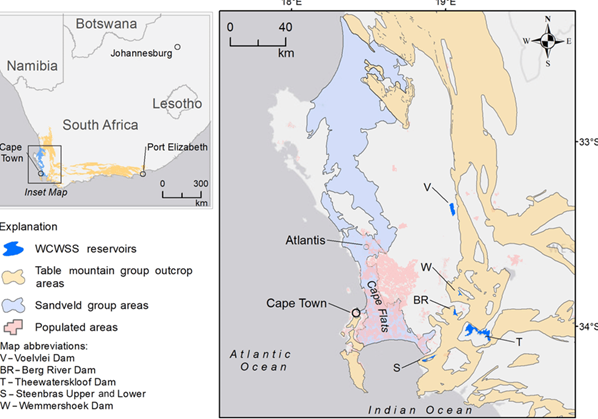
Image
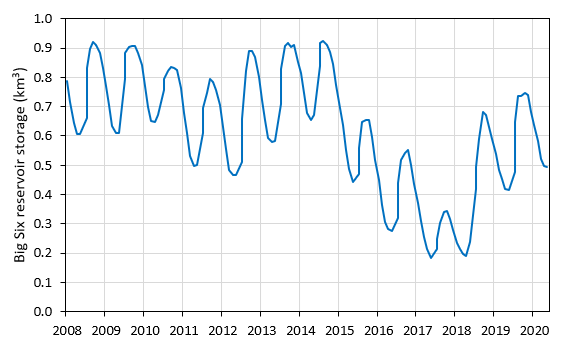
Image
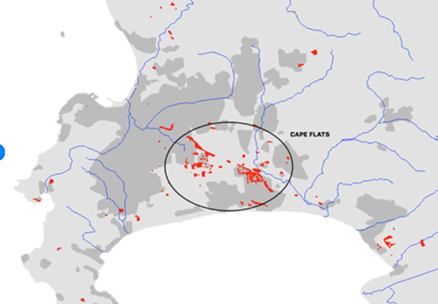
Image
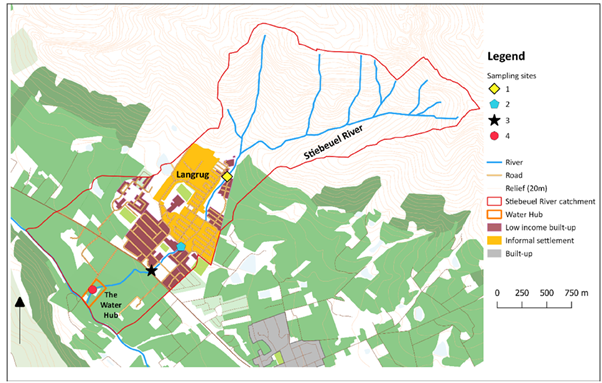

Image
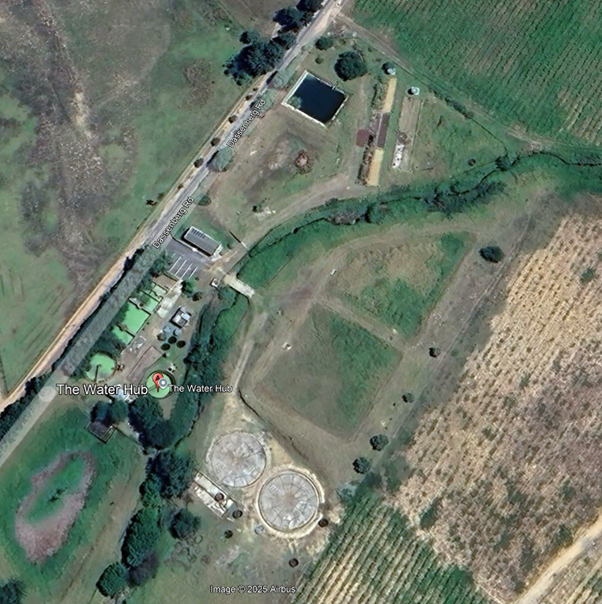

Image
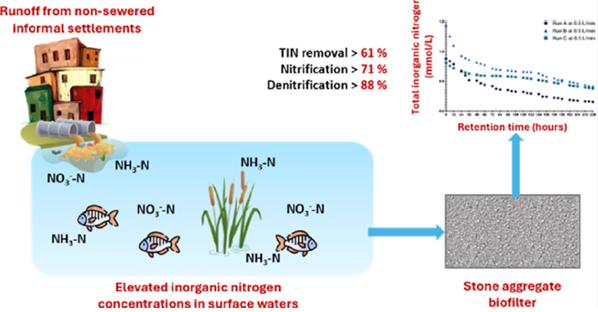
Image
